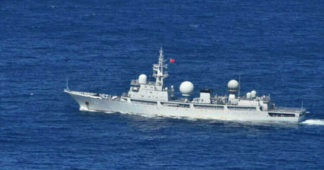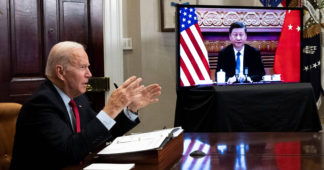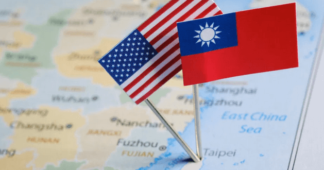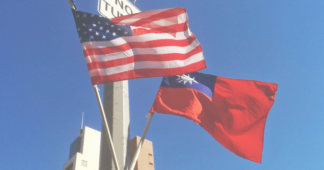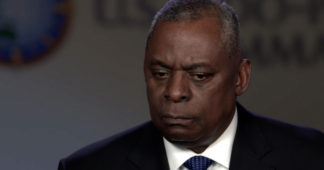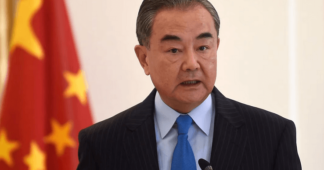Jun 16, 2024
Chinese President Xi Jinping has repeatedly underscored that the Taiwan issue in China-US relations is a major red line that must not be crossed. Beijing has also urged Washington to stop sending “erroneous signals” to Taiwanese separatists.
Xi Jinping warned Ursula von der Leyen about Washington’s attempts to provoke Beijing into attacking Taiwan, the Financial Times reported.
China’s president delivered the cautionary message in April 2023 both to the European Commission president and officials in his own country, according to insiders.
The gist of Xi’s warning was reportedly that the Biden administration was trying to goad the People’s Republic of China (PRC) into invading Taiwan, but the Chinese leader would not be taken in that easily.
When delivering the warning last year, Xi purportedly added that a conflict with the US would dismantle many of his country’s impressive achievements and undercut the stated goal of achieving a “great rejuvenation” by 2049.
The report laid emphasis on the fact that if true, this would have been the first known case of Xi Jinping making such a claim to a foreign leader.
There has been no comment specifically on the report from either the Chinese Embassy in Washington or von der Leyen’s spokesperson.
Taiwan has been governed independently of mainland China since 1949. Beijing views the island as its province, while Taiwan — a territory with its own elected government — maintains that it is an autonomous country, but stops short of declaring independence. Beijing opposes any official contact of foreign states with Taipei and considers Chinese sovereignty over the island indisputable.
The FT report comes amid heightened US-China tensions. Beijing has referred to the Taiwan issue as a “red line” that must not be crossed in its relations with Washington.
“We will not turn a blind eye to the separatist activities of forces advocating ‘Taiwan’s independence‘ and the connivance and support [of these forces] by outside forces,” Xi Jinping was quoted by the Xinhua news agency as telling US President Joe Biden during a phone conversation in April. Biden, in turn, reportedly said that the US does not support Taiwan’s independence and is not planning to enter into a conflict with China.
US Secretary of State Antony Blinken echoed these statements, telling Chinese Foreign Minister Wang Yi that the United States “continues to pursue the one-China policy and does not support Taiwan’s independence.”
However, despite Washington officially claiming to support the one China policy, the US military has been holding extensive drills in the region. Chinese Foreign Ministry spokesman Lin Jian slammed the military exercises as stoking confrontation in the region that “will only intensify tensions and undermine regional stability.”
The show of strength came as the US-backed new regional leader of Taiwan William Lai Ching-te took his oath of office. Shortly after Taiwan’s ruling Democratic Progressive Party (DPP) pro-independence candidate won the election, he vowed to “protect Taiwan from China’s continued threats and intimidation.”
This prompted China’s Taiwan Affairs Office chief Chen Binhua to declare that Beijing “will adhere to the 1992 consensus, which embodies the One China principle, and firmly oppose separatist actions aimed at achieving Taiwan’s independence, as well as interference by external forces.”
Furthermore, according to the Chinese Foreign Ministry, Washington has supplied Taiwan with $70 billion worth of arms and ammunition in recent years. Under the Taiwan Relations Act (TRA), Washington is committed to providing Taiwan with “arms of a defensive character.” In a recently adopted draft bill, the US greenlit a major military aid package that includes funds for the Indo-Pacific. The legislation provides for $2 billion in foreign military financing for Taiwan and other partners in the region to counter China.
We remind our readers that publication of articles on our site does not mean that we agree with what is written. Our policy is to publish anything which we consider of interest, so as to assist our readers in forming their opinions. Sometimes we even publish articles with which we totally disagree, since we believe it is important for our readers to be informed on as wide a spectrum of views as possible.
